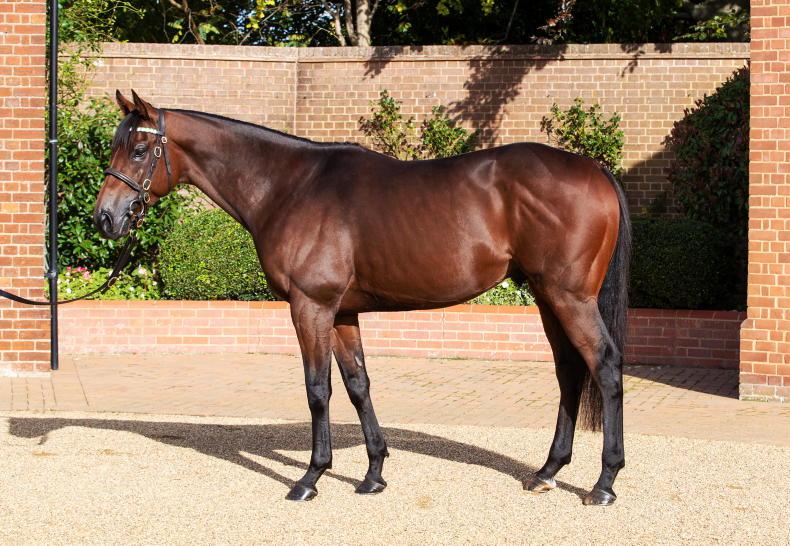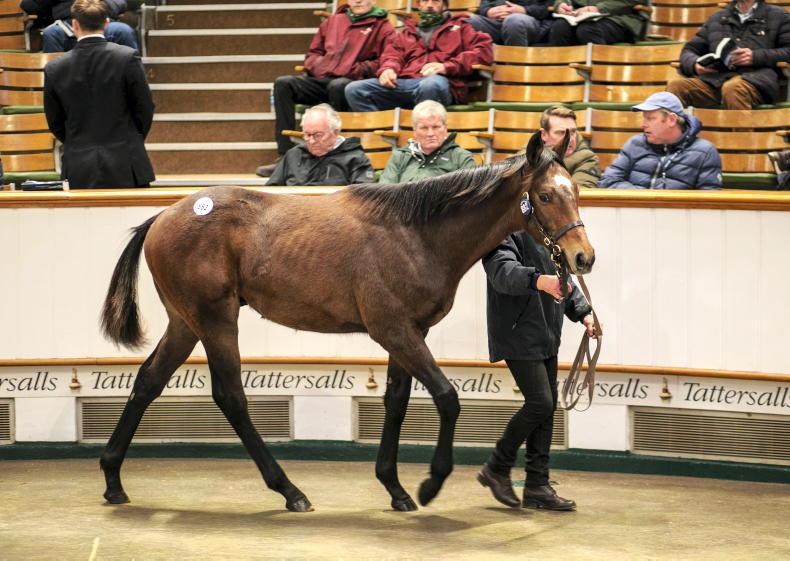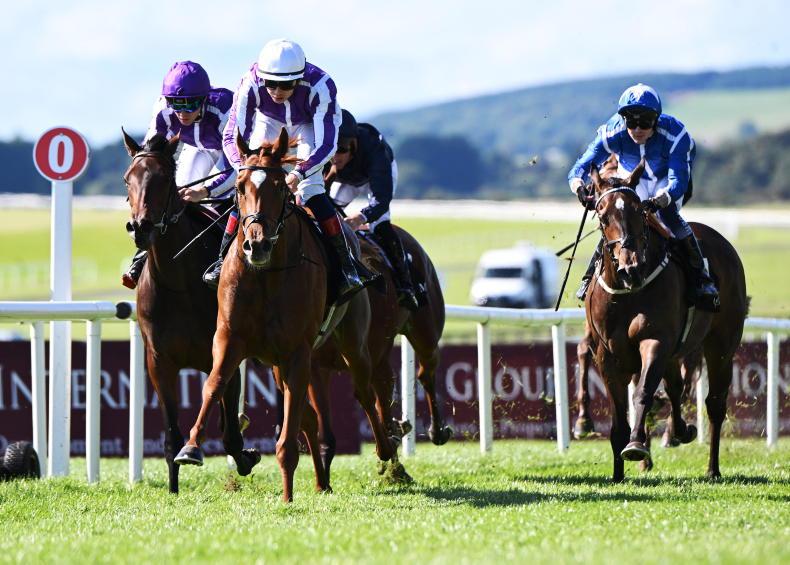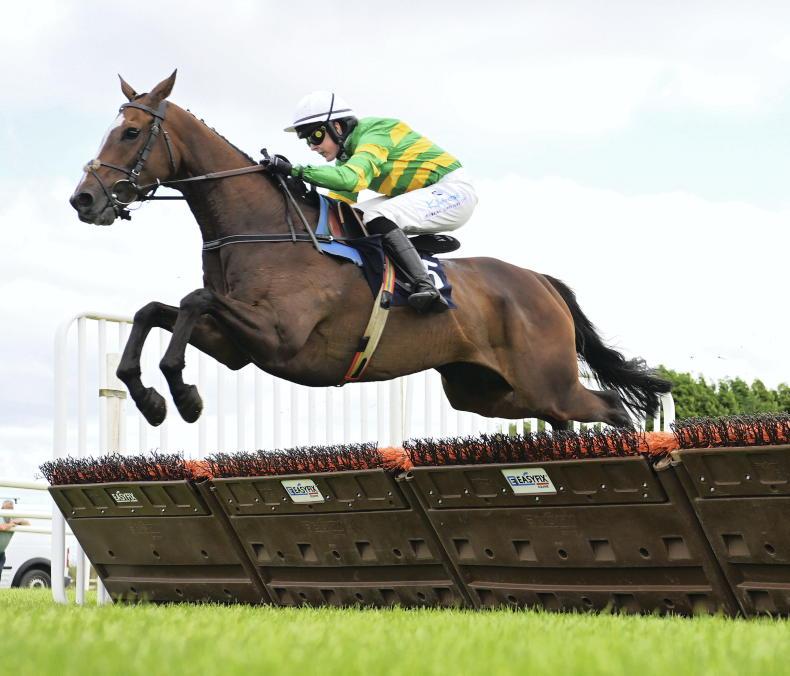2012
LAST Saturday at Ascot the curtain came down on the racing career of the most remarkable thoroughbred racehorse who has ever lived.
That is a significant statement, as literally millions of thoroughbreds have been bred since the late 1600s, all brought into existence with dreams of being the best. There have been horses in the past who have come close to the level of talent that Frankel possesses, but none produced such brilliance both from a visual and form perspective with the regularity that he did.
Frankel’s win in the Qipco British Champion Stakes was not one of his best efforts on the book, but to beat Cirrus Des Aigles, one of the leading horses in the world on any surface, but particularly formidable in the testing conditions that prevailed on Saturday, was the perfect finale to what has been a career littered with highlight moments.
Saturday also provided further evidence that Excelebration, five times a victim of Frankel, has to be considered a superstar miler in his own right, further enhancing the historical standing of Frankel.
Peerless star
One could talk about Frankel all day, but now that he has reached the end of his racecourse odyssey, it is perhaps appropriate to talk about the human team behind the colt, those who nurtured him into the peerless star that he became.
First mention must go to the man who is perhaps the unsung hero in the Frankel story, his owner and breeder Prince Khalid Abdullah. Owners and breeders are all too frequently overlooked in the appraisal of great horses, but the role the Prince played in the Frankel story was pivotal.
From a pedigree perspective, Frankel was over 25 years in the making for the Prince, as he purchased the horse’s great-grandmother Rockfest all the way back in 1982, carefully nurturing and developing the family since then.
More so than anything else, it was the Prince’s decision to keep Frankel in training as a four-year-old that history should be the most thankful for, as it was a decision that flew in the face of common and commercial sense.
A regally-bred and unbeaten three-year-old that had not only dominated his own generation, but also vanquished the leading older miler in training, Frankel had arguably nothing left to prove and, with potential earnings of over £10 million in his first year at stud, it would have been fully understandable had he been retired then.
Despite this, the Prince gamely sent his star colt back into battle for another season and it proved to be an excellent decision, with history being sure to judge that it was his four-year-old campaign which stamped Frankel as a true all-time great.
Loyal owner
Finally, the owner should be commended for his loyalty. He stuck with Sir Henry Cecil when many others had deserted him during his lowest days in the early to mid-90s. As well as that, he stuck with Tom Queally through thick and thin, whereas other high-profile owners would have sought an excuse to call on the services of a more established big race jockey as the stakes got higher and higher.
That brings us to Queally; in all honesty, as Queally was in the process of establishing himself as a Group 1 jockey when Frankel emerged in 2010, if the question ‘which jockey in the world would you choose to partner the best horse in the world?’ was asked, Queally wouldn’t have appeared in the top 10 picks of most racing fans and professionals at the time.
During the first half of Frankel’s career, his hard-pulling pace proved a serious challenge for Queally and, at times, it wasn’t pretty. An overly-aggressive ride in the 2000 Guineas, and a particularly poor effort in the St James’s Palace Stakes which almost saw the great horse beaten by the vastly inferior Zoffany, raised questions of whether Queally was the man for the job, but the owner and trainer kept their faith in him.
As Frankel matured and settled down, so did Queally, and the Waterford man rode the brilliant colt to absolute perfection in the face of substantial pressure throughout 2012.
Improved
Have no doubt that the experience of riding Frankel has improved Tom Queally more than 10 years of riding lesser horses would have. With him having only just turned 28, he looks set to rise to the very top of his profession in the years ahead.
Last, but most certainly not least, Sir Henry Cecil. A man who has reached many peaks in his career, but also plummeted to heart-wrenching troughs. Stomach cancer may be doing its best to throw cold water on his fire, but it didn’t stop him executing what history is likely to record as one of the all-time great training feats.
Make no mistake, Frankel spent the first half his career jig-jogging at the crossroads that was marked ‘the right way’ and ‘the wrong way’. There were genuine fears that being given his head so early in the 2000 Guineas, and again in the St James’s Palace Stakes, would make him impossible to re-settle but, against the odds, Cecil succeeded in doing so.
There was pressure too, not just from a racing public who wanted to see the great horse campaigned more adventurously, but one suspects there was also internal pressure on Cecil to run the horse in last year’s Juddmonte International at York, the race sponsored by his owner.
Lesser trainers would have taken the risk, but Cecil knew the horse wasn’t ready for the longer distance at that stage and, indeed, it wasn’t until this season that Frankel looked tractable enough to race efficiently and step up in trip.
No Arc
One question that will endure is why didn’t Frankel run in the Arc? As it turned out, he could have run 10lb below form and still won it well but, given that he started slowly in his last two starts, he would presumably have done the same at Longchamp.
Now ask yourself this: imagine watching Frankel missing the kick and getting caught behind the 17 other horses in that field, losing his unbeaten record through nothing other than poor luck in running? What a tragedy that would have been.
The perceived conservative campaigning of Frankel has been a bugbear for many for a long time, but one can only hope that it doesn’t detract from his legacy. In this writer’s view, dragging this colt further away from his optimum conditions in a bid to test him wasn’t necessary, as it is more important to find the limit of a horses’ ability rather than the limit of their stamina or versatility.
Sure, if a horse doesn’t do much in front, it may require such variations in trip and ground to drag the best out of them in the face of adversity, but Frankel was so exuberant that he showed just how much he was capable of in almost all his starts.
It was Cecil’s considered campaigning that allowed Frankel to put up so many tip-top performances throughout his career and that is what his legacy should be, jaw-dropping brilliance with a consistency never before witnessed.
With youth on my side, there is a hope that I will live to see a better horse than Frankel. Indeed, it is the hope of seeing great horses that fans the fire of our passion for this magnificent sport. However, if I don’t, the memories of this incredible racing machine will ensure that I never feel hard done by.


 This is a subscriber-only article
This is a subscriber-only article
 It looks like you're browsing in private mode
It looks like you're browsing in private mode












SHARING OPTIONS: